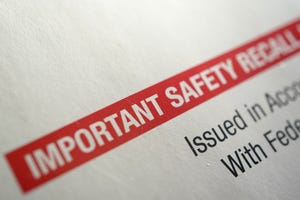
Hog operations are under a microscope, with outsiders watching every move, all in the name of animal welfare. That microscope has forced the industry to get better at how producers handle and transport hogs on their farms and beyond.
Originally launched in 2002, the Transport Quality Assurance program is designed to help swine transporters, producers and handlers understand how to handle, move and transport pigs, tying in the potential impacts those actions have on pig well-being and pork quality.
">
“This (pork) checkoff program is a voluntary education program. However, with that said, most all packing plants require anyone delivering hogs to their plant needs to be certified TQA,” says Sherrie Webb, animal welfare director for the National Pork Board.
The TQA is updated every three years, which coincides with the length of certification for producers and haulers. Program revisions are intended to provide the most current, science-based information on humane handling and transport of pigs for more than 29,000 handlers and transporters in the industry.
The latest revisions implemented last spring hold four key changes to the previous TQA version, with the first item concentrating on teaching about animal behavior. “We take a look at how that chapter is presented, so before we had talked about the pig themselves — where their eyes are placed and their hearing senses and understanding flight zones,” she says. “We’ve taken that and tried to provide an understanding of how those concepts are applied in different parts of the barn: alleyway, in a pen, or working-type spaces, chute or trailer. How those concepts are applied in real-life situations.”
Another revision in the 2014 TQA version is an update to bedding and boarding recommendations on the trailer. Webb says those recommendations come as a follow-up to two NPB projects in the past few years that have looked at bedding, boarding and misting.
Adapting to changes in weather, especially temperature extremes, costs the U.S. pork industry millions of dollars annually. Handlers and transporters must understand the effect weather can have on pigs during transport, and how best to protect them during extreme weather. The revised TQA program teaches transporters the importance of planning ahead and properly bedding and boarding trailers.
“Right now the recommendations are for market pigs. We have a couple projects funded that are looking at recommendations for weaned pigs, but we don’t have a lot of data right now for weaned pigs,” Webb says. She goes on to say that prior recommendations were based on best practices, but research projects are providing data to back up those recommendations.
Webb says a third change in the 2014 TQA revisions is in the biosecurity section, which she says came at “the right time to coincide with what we were learning from the PED [porcine epidemic diarrhea] research and tie that in to the TQA recommendations. ... Cleaning and disinfecting trucks and maintaining the clean-dirty line on farms, and those types of practices.”
While the TQA is updated every three years, Webb notes that if crucial practices are revealed prior to the next scheduled revision rollout, “we will push that information out to producers and truckers.”
Putting more emphasis on expectations at packing plants is another component of the latest TQA revisions. “There are legal requirements by the U.S. Department of Agriculture Food Safety Inspection Service inspectors at the plant, and because drivers are on plant property they are under that jurisdiction, so they need to be aware of what those requirements are, and how to comply with those,” Webb says.
The Pork Quality Assurance Plus program also contains an animal handling section, “so we try to make sure that the two programs are consistent with each other, but the revision cycles of the two programs do not coincide so for a time they are not consistent. There are a lot of things that drivers need to know that aren’t included in the PQAPlus, and there are some things on the pork safety side that drivers do not need to know, so we maintain to two separate programs, but make sure they do line up, at least in the animal handling section.”
The TQA handbook is available by clicking here.
More information on the TQA can also be found here.
About the Author(s)
You May Also Like



